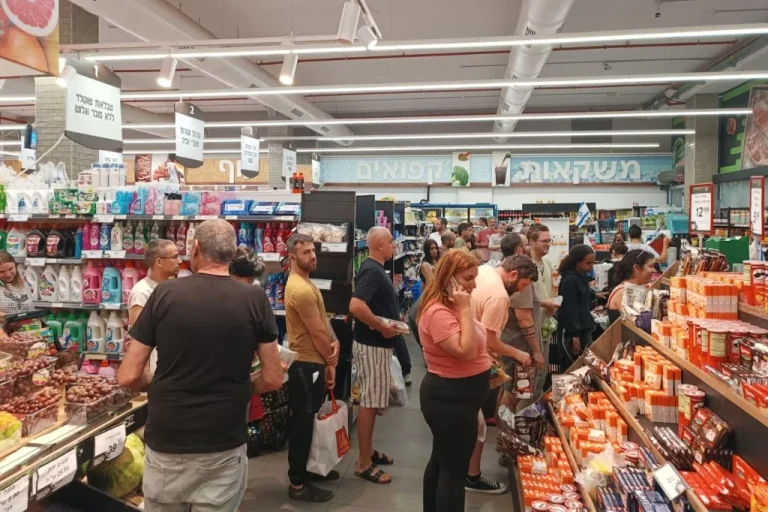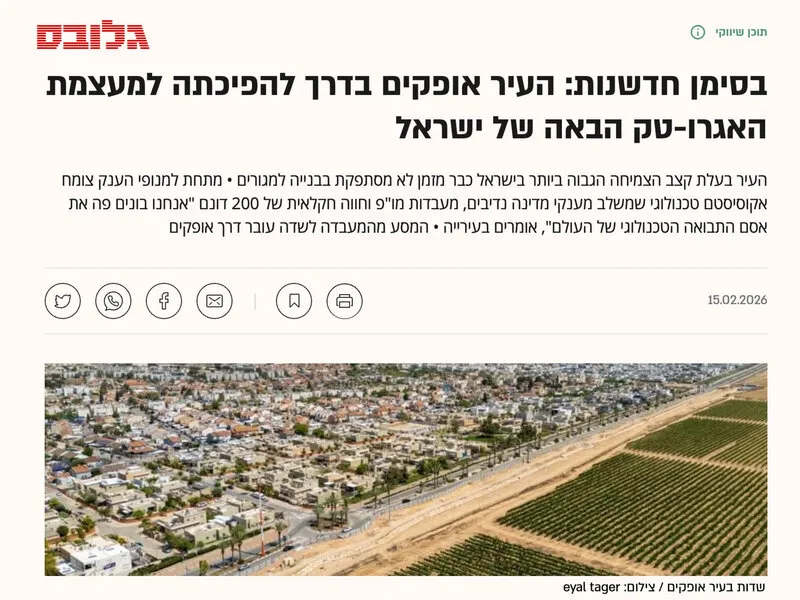Jerusalem, 21 October, 2025 (TPS-IL) — Israel’s food security is increasingly at risk due to poor emergency preparedness, dependence on imports, and neglect of domestic agriculture, according to a State Comptroller’s report released Tuesday. The audit found shortages of three essential products in national emergency warehouses, infested wheat stocks, and unprepared factories tasked with food supply during crises.
State Comptroller Matanyahu Englman warned that “a shortage of essential products is serious, and during an emergency can lead to damage to the functioning of residents and the economy.” Ten months after emergency preparedness plans were updated, the report said, “the shortage of the products described is not negligible.”
The State Comptroller, also known as the State Ombudsman, periodically releases reports auditing Israeli preparedness and the effectiveness of government policies.
Among 14 key food products — ranging from rice, sugar, and bread to meat, eggs, and produce — three are below required stock levels. The shortfall stems partly from halted imports from Turkey. For two products, contract coverage with suppliers is missing by 12% and 44%, while one product’s warehouse inventory is down 15.9% from required amounts. The Ministry of Economy said it plans a new tender to close the gaps, but the Comptroller urged it to act “without delay.”
Geographic concentration also poses a risk: four of the ten essential items managed by the Economy Ministry are stored in a single region, and most others are clustered in only two. Any disruption in transportation could “prevent regular or any supply to other areas,” Englman’s report warned.
The audit also found that the Ministry of Agriculture cannot accurately state how much usable wheat exists in its emergency stockpile. Inspections of ten storage sites revealed widespread contamination — wheat infested with insects, moths, and pigeon droppings, or stored improperly in warm, dusty conditions.
“Although the amount of wheat in the warehouses meets the required quantity, much of it is low-quality and cannot serve as a source of supply to the public in times of emergency,” the Comptroller wrote.
The same applies to animal feed: about half the required emergency stock is missing, including key ingredients such as oils and vitamins. Such gaps could lead to shortages of milk, eggs, meat, and baked goods.
The report faulted the Agriculture Ministry for failing to identify which essential food products must be produced domestically or to set self-sufficiency goals. Unlike other nations such as Japan or Turkey, Israel “has not mapped the essential products that must be maintained for production in the country,” leaving it vulnerable in times of war or global disruption.
Israel’s emergency food factories are also underprepared. Of 279 essential facilities, 23% are only partially ready for emergencies and 4% are not ready at all. Even among the most critical sites, two of six top-tier factories were only partly prepared.
Meanwhile, three of Israel’s six largest food suppliers — Tnuva, Osem, and Unilever — are foreign-owned, together controlling about 20% of the food market. “Foreign ownership of 20% of the market has a potential impact on the food security and national security of the State of Israel,” the Comptroller cautioned, calling for a mechanism to review foreign acquisitions in the food sector.
Israel now imports most of its fish, oil, and grains — over 97% of grain consumed domestically, one of the highest rates globally. Wheat imports rely mainly on Russia, Ukraine, and Romania, all regions of instability. Yet the government has not conducted a risk assessment to address potential supply disruptions. “High dependence on imports exposes countries to climatic, geopolitical, and other risks,” the report said.
Nearly all imports — 99% — arrive by sea, but Israel’s merchant fleet is in crisis. The number of Israeli sailors fell 77% over the past decade, and cadet numbers dropped 90%. An NIS 70 million ($21.2 million) maritime security plan, “Otzar Hayam,” remains incomplete. “Protecting the Israeli merchant fleet and sailors is a vital strategic need,” the audit said, warning that war expansion could cripple the transport of food and raw materials.
Agriculture is also in decline. The OECD recorded a 1.3% fall in productivity between 2011 and 2020, while government policy has shifted support from direct subsidies to indirect aid, contrary to international best practices. Imports have been encouraged to lower prices, but the Comptroller found the reform “led to the opposite result”: domestic production fell, import dependence grew, and prices rose. In 2023, fruit and vegetable prices increased 4.8% and 6.1%, respectively, outpacing overall inflation.
The report concludes that Israel lacks a coherent national strategy to secure its food supply. Without urgent reforms, it warns, the country risks being unprepared for the possible continuation or expansion of the war.































